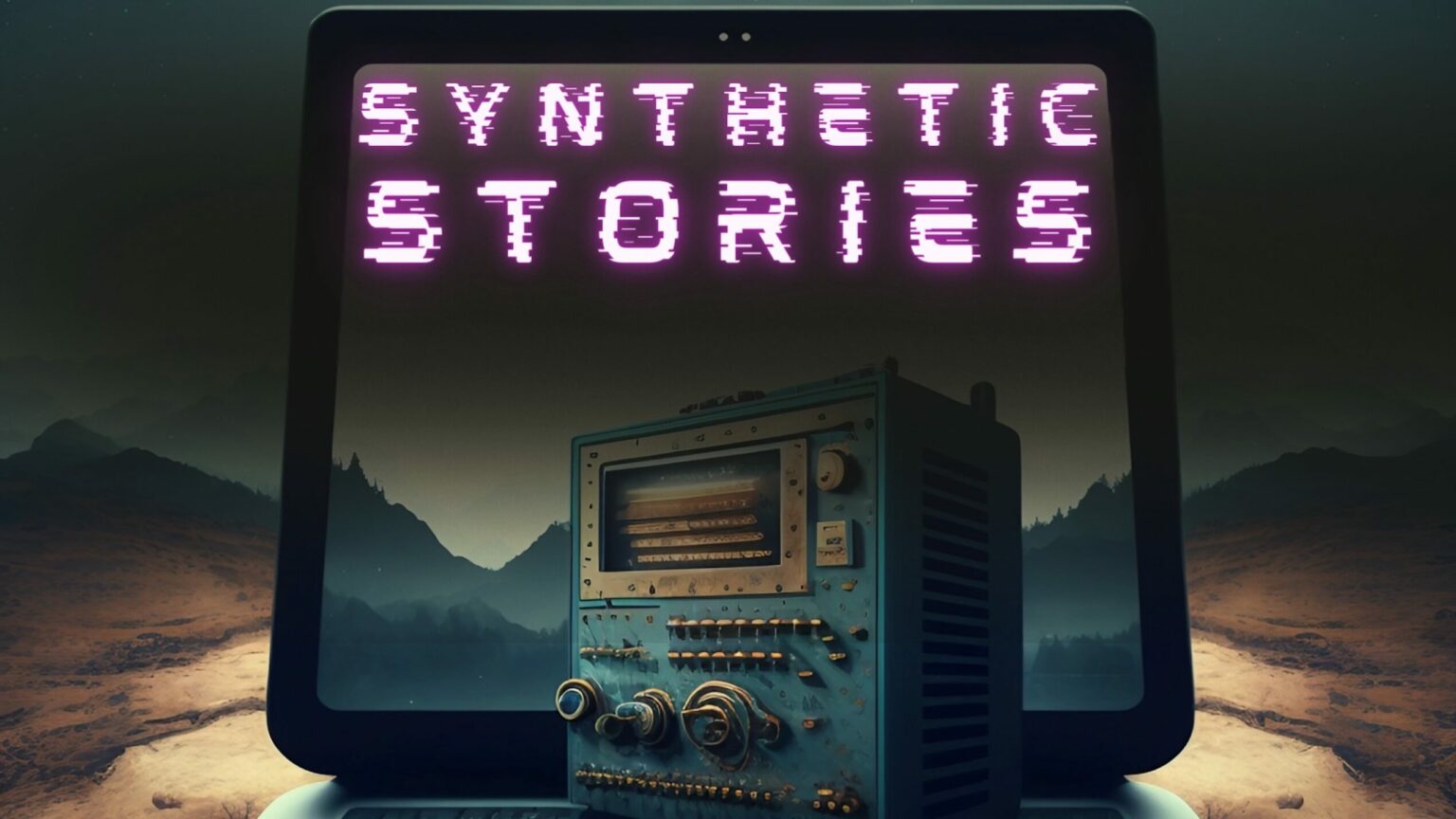Podcast agency This is Distorted has revealed that its latest podcast was made entirely using artificial intelligence. Entitled Synthetic Stories, every aspect of the series “from the writing to the sound design, artwork to the music and even this very description was created entirely by AI.”
A ‘cool and creepy’ AI short story
The UK-based podcast producer unveiled the series on Twitter, revealing that the idea had just come to its team last week while playing around with popular AI tools. The first episode of the series, an eight-minute long “chilling horror tale” called Amelia, has now appeared on Apple and Spotify.
“We started simple, asking ChatGPT to write us a short story,” said producer Sian. “We asked it to base it on AI and podcasts and added some keywords, like apps, horror, dark twists and ‘end on a cliffhanger.’”
As well as ChatGPT, This is Distorted’s team used AI photo generator Midjourney to design the artwork. ElevenLabs’ AI-powered text-to-speech software was also recruited to create two narrators, while AI music generator Soundraw handled the audio.
“By Thursday evening we had a very cool and creepy little short story, a name, a narrator, some incredible theme music, brilliant artwork, all created by AI, all within the space of 24 hours,” enthused Founder Andi Durrant, adding that the plan was to release a few episodes each week.
Want to see something quite mind-blowing..?
We’ve just created a new podcast made ENTIRELY with AI.
The story, voice, music, artwork – everything was made by artificial intelligence.
Incredible or terrifying? Here’s how we did it… pic.twitter.com/dc5uCVC5g7
— This Is Distorted (@thisisdistorted) March 20, 2023
The debut podcast, Amelia, is a fairly run-of-the-mill horror short story about a young woman, the titular Amelia, who becomes obsessed with a new mobile app called Horror World. Gradually, she senses the app is adapting to her likes and dislikes and crafting a terrifying personalised experiences just for her (“Even the most avid horror fans would find themselves trembling in fear”). In a twist no-one saw coming, the app develops a life of its own and the more she uses it, the more she starts to distrust it…
While the story isn’t exactly complex, it’s not hard to imagine the series gaining listeners, mainly those keen to satisfy their curiosity about just what an AI-created podcast sounds like. Considering episode one was apparently produced in just 24 hours, one wonders how much more elaborate tales could be as the team gets to grips with the technology.
It’s perhaps fitting that the first podcast was about a deranged ‘AI Syndicate’, though the Synthetic Stories press release suggests future stories will include “sci-fi thrillers and heartwarming dramas.”
Generative AI’s quest for world domination
This is not, of course, the first time AI has been leveraged to produce creative work. Last month, we reported on the spate of Amazon e-books listing ChatGPT as either the sole author or co-author.
At the time Mary Rasenberger, executive director of writers’ group The Authors Guild, stated her belief that AI-created books would “flood the market” and put many professional writers out of work.
Synthetic Stories isn’t the only AI-produced podcast, either. Another series, podcast.ai, is entirely generated by the technology and features invented conversations and contributions of famous people, including Oprah Winfrey, Quentin Tarantino, and Joe Rogan.
The creative industries certainly seem ripe for AI exploration, with multiple AI-powered content-creation tools available to enhance productivity, improve writing, and produce multimedia such as videos, images and sounds.
One company that has been generating headlines is Runway, a software startup that helped develop text-to-image model Stable Diffusion. Its upcoming Gen-2 tool lets users generate videos from scratch, based on just a few prompts.
:no_upscale():format(webp)/cdn.vox-cdn.com/uploads/chorus_asset/file/24522122/A_close_up_of_an_eye.2023_03_20_13_44_52.gif)









 and then
and then